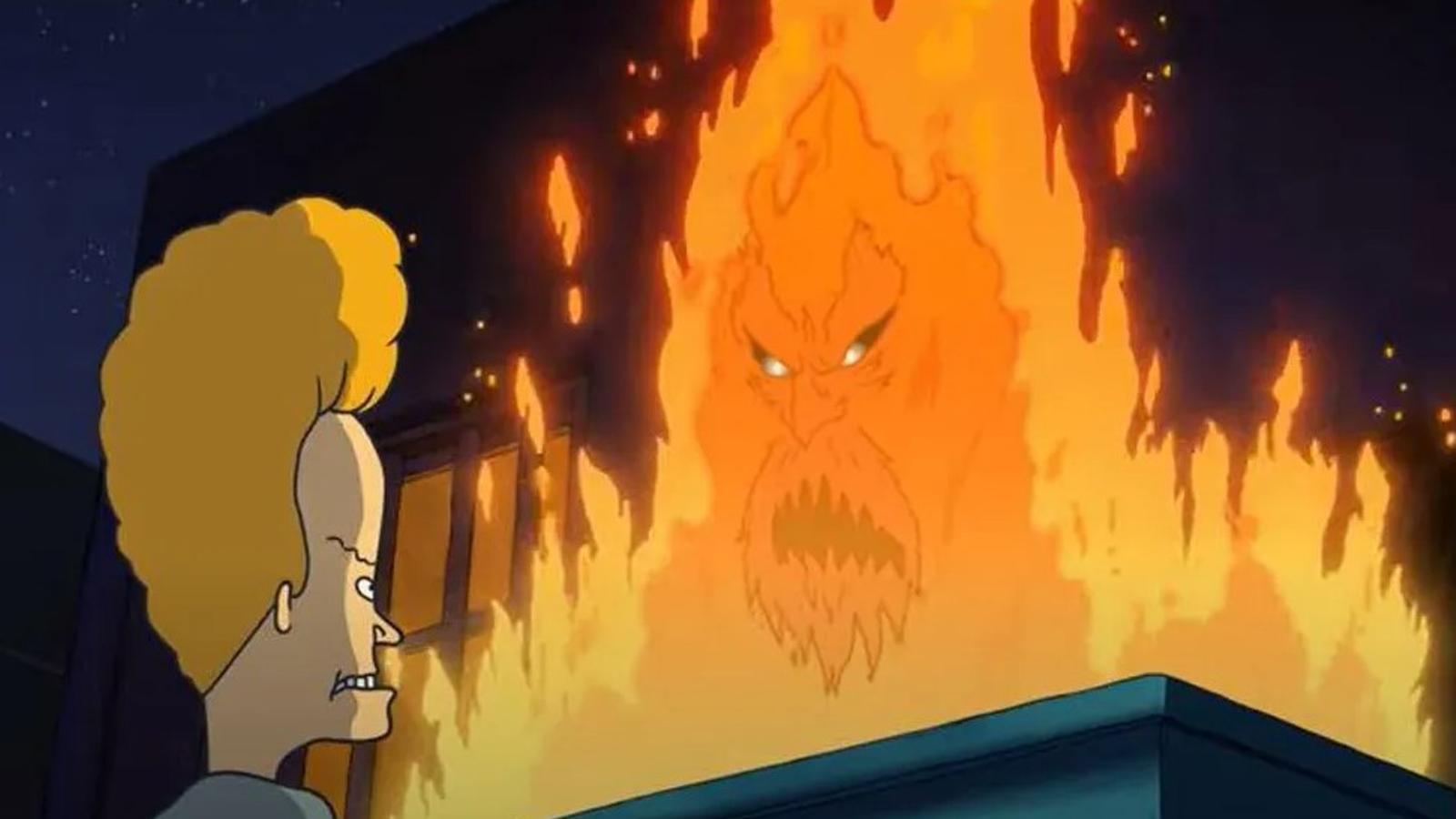The animated series accused of promoting pyromania
MTV had to change some plots and delay the broadcast schedule due to an unclear event.


BarcelonaEvery Sunday in the summer, the ARA revisits some of the most controversial series in the history of television. The second installment is Beavis and Butt-Head, an animated series that is difficult to classify by age.
The two teenagers who were most successful in the golden age of MTV, back in the distant 90s, were not the leading members boy band, not a hip-hop duo with attitude, but two wayward and very pallusos teenagers who, in cartoon form, starred in one of the most iconic series on the network: Beavis and Butt-Head. Left to their own devices – we never saw their parents – they would invade the channel's videos with their shameless comments and, between clips, a thousand misfortunes befell them as a result of their Bretolism and negligent upbringing.
The first run of episodes aired between 1993 and 1997 and was fraught with controversy: this wasn't like The Simpsons, which offered ironic yet friendly humor suitable for family audiences, but was a symphony of destruction and questionable substance use. One of its most overwhelmed critics was Terry Rakolta, the leader of the conservative organization Americans for Responsible Television. She had become famous four years earlier as the driving force behind a boycott of the series. Married with children (for showing a woman from behind but showing her breasts to the protagonist), which resulted in a reduction of the most risqué content and a half-hour delay of the series. Beavis and Butt-Head He wasn't so lucky, despite his continued denunciation of the vulgar language, full of double meanings, and the animal abuse in some of the scenes.
Until the fateful date of October 6, 1993, arrived. That day, five-year-old Austin Messner set fire to his mother's trailer with a lighter, killing his two-year-old sister. The mother blamed the show for the incident because, according to her, the boy had been watching an episode of the series shortly before, where Beavis displayed one of his characteristic traits: a fascination with fire.
Although some neighbors were skeptical of this version of events, noting that the mother didn't have cable TV and therefore didn't have access to the show, MTV still agreed to move the show from seven in the evening to ten in the evening, clearly indicating that it was aimed at an audience; removed some episodes, and toned down the references to fire. The creator of the series, Mike Judge, decided to use this censorship to his advantage, so from time to time Beavis would call out words very similar to fair such as "to lie, to lie!" either "fryer, fryer!" (liar and deep fryer, respectively).
Fifteen years after the incident, Messner also rejected the idea that his action was sponsored by the series: "I literally never watched those cartoons. How could he? It was 1993, my mother was a drug addict. We couldn't afford cable TV!" But the network, out of prudence, preferred to make a gesture in the face of the media wave raised by this case. And they issued a statement in which they recalled that this series was not intended for children and that, in any case, it parodied characters who in no way should be taken as a model of behavior, as was evident seeing their situation, the general stupidity they displayed and the sad results of their ideas. Its creator, Mike Judge, continued with other animated projects, such as King of the Hill, of a much more moderate mood. And the pair of gambirots were the subject of a reboot in 2022, but by then MTV was already a vestige of what it had been and on the platform where it aired, Paramount+, the new episodes passed without pain or glory.
Paradoxically, the passage of time has made the law of the pendulum prevail and it is the early chapters that are now the object of adoration. Originally, it was the conservatives who were scandalized by the behavior of the two Gamarrusos. But, seen today, some of those chapters would not pass the progressive cotton test, such as one in which the boys falsely accused a girl of sexual harassment for wearing too provocative clothing, in an unequivocal display of slut-shaming which would provoke calls for its cancellation. And, precisely for that reason, some circles of the so-called manosphere –blogs and pseudo-media that vindicate aspects of masculinity considered by progressives as toxic– have begun to vindicate Beavis and Butt-Head because today they would unleash the wrath of the wokes. Conceived as nihilistic social criticism, they ultimately ended up being role models and heroes—just as the network wanted to avoid—and for all the wrong reasons.
